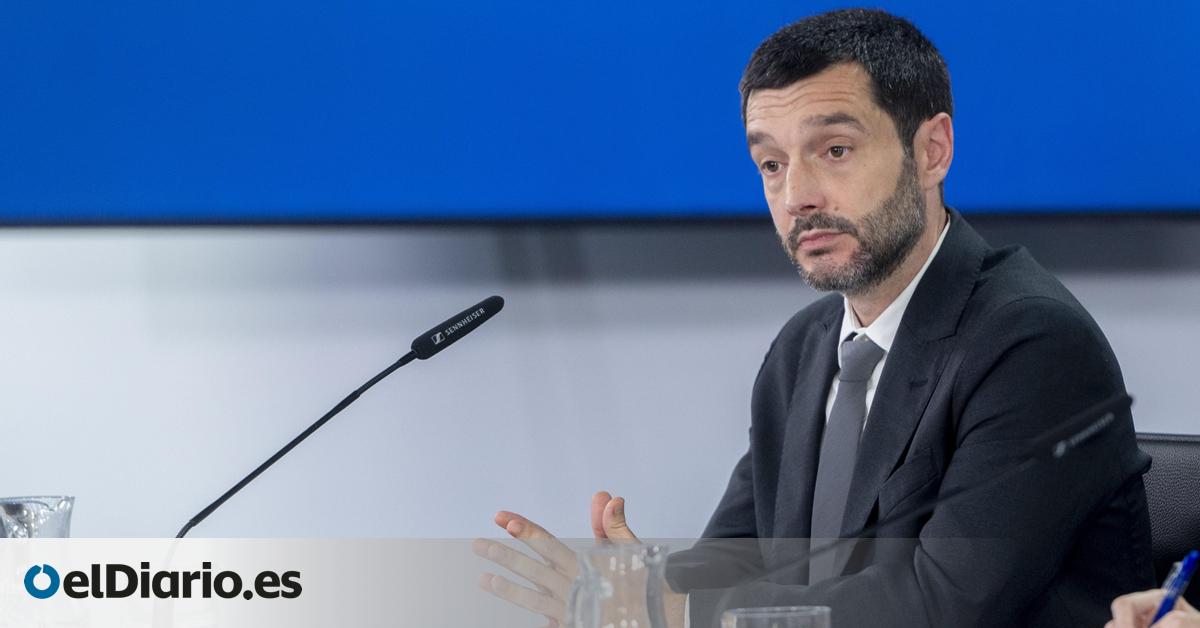
The Government has approved the draft Law of Sustainable Consumption that, among other measures, will entail prohibiting the advertising of short flights, when there is a less polluting alternative and whose difference of duration does not exceed two and a half hours; and will veto the advertising of fossil fuels and those vehicles driven exclusively by them.
It is not the only step, because it also forbids the ads that launch alarmist messages to cause fear and anxiety.
The draft law has the “objective to strengthen the protection of consumers and the environment with measures that promote conscious and responsible consumption,” explains the Ministry of Social Rights, Consumption and Agenda 2030. Also the “Promotion of the repair of goods, as well as ensure clear and reliable information on the environmental characteristics of the goods and services we consume”.
“It is an ambitious law that includes many measures, with five very ambitious aspects,” said Minister Pablo Bustinduy during the press conference after the Council of Ministers. He has also deepened the need for these measures to entail a price reduction for consumers. “In Spain, 1% of the population pollutes more than 12 million people. It is the rich that most contaminate and the poorest who pay it most,” he stressed. “The economic system must be responsible and ensure access to a mode of sustainable consumption, that is a right and not a matter of income.”
The text that comes out of the Council of Ministers also prohibits the rise in prices in the resale of entries and measures are included to combat scheduled obsolescence, avoid ‘Greenwashing’ or ‘Ecopostureo’ and warn the consumer about the phenomenon known as reduction. Likewise, the draft collects initiatives to encourage the circular economy, the right to repair or the promotion of more sustainable purchase elections. In this sense, it transposes two European directives: the Empowerment Directive for the ecological transition and the right to repair.
End to fossil fuel advertising
Regarding the details of the draft, the Law of Sustainable Consumption provides for any type of advertising on energy products composed exclusively of derivatives of fossil origin, in which renewable components do not participate, explains the ministry. “The limitation will be applied when advertisements are issued by companies in the coal or oil sector, being excluded from this prohibition gas. This legal modification aims to reduce the presence of products or services based on fossil energies, such as gasoline, which contribute to increase greenhouse gas emissions and air pollution.”
The text also contemplates the prohibition of the advertising of short flights when there is a cleaner alternative and that does not involve an increase of more than two and a half hours of the journey. The prohibition will apply only when the route has origin and destination within the peninsular territory. Finally, the ban will also affect the advertising of vehicles that are driven exclusively by fossil fuels and, therefore, are more polluting.
Input resale
Regarding the resale of tickets, consumption indicates that the future standard will prohibit this practice when an increase in price higher than the CPI is applied from the moment of the initial purchase.
In this way, explains the department headed by Pablo Bustinduy, the resale will be tried to attack the economic benefit of market actors. This new limit adds to the already in force prohibition that sanctions the use of bots to acquire inputs of cultural shows massively to subsequently resell them.
Scheduled and Ecoposture Obsolescence
The draft also seeks to combat ‘eco -positive’ or ‘Greenwashing’. Both terms refer to deceptive communication techniques or environmental allegations that are used by some companies to advertise their products or services as sustainable without those supposed qualities having a scientific support, the ministry explains.
To limit this practice, the future law will prohibit companies from making generic and non -verifiable statements about the sustainability of their products or in their labeling. Among the examples of generic environmental statements that will be eliminated are included, for example “environmental respectful”, “friend of the environment”, “green” or “biodegradable.” “We are going to establish a system to certify objectively,” Bustinduy said.
The limitation of programmed obsolescence is also pursued. With this practice, companies intentionally reduce the useful life of products such as appliances for people to replace them early. To act on this flank, the consumer proposal encourages the repair of products during the legal guarantee period, increasing this period in additional twelve months when the repair is chosen instead of the substitution when making use of the guarantee. Likewise, the producer, the marketer or the importer (when the producer is out of the EU), must assume 20% of the repair cost during the first two years after the end of the legal guarantee period. This obligation is 10% in the third year and 5% in the room. And the spare parts will have to be available for 10 years.
Likewise, the preliminary draft plans to implement an online platform where consumers can have access to solvent repairers to request budgets and request repairs, lists consumption. Likewise, this standard prohibits hiding information to the consumer about software updates that negatively affect the operation of goods with digital elements; It prohibits presenting as necessary a software update that only improves functionality characteristics and, among others, prohibits any commercial communication in relation to a good that contains an introduced characteristic to limit its durability.
Source: www.eldiario.es

